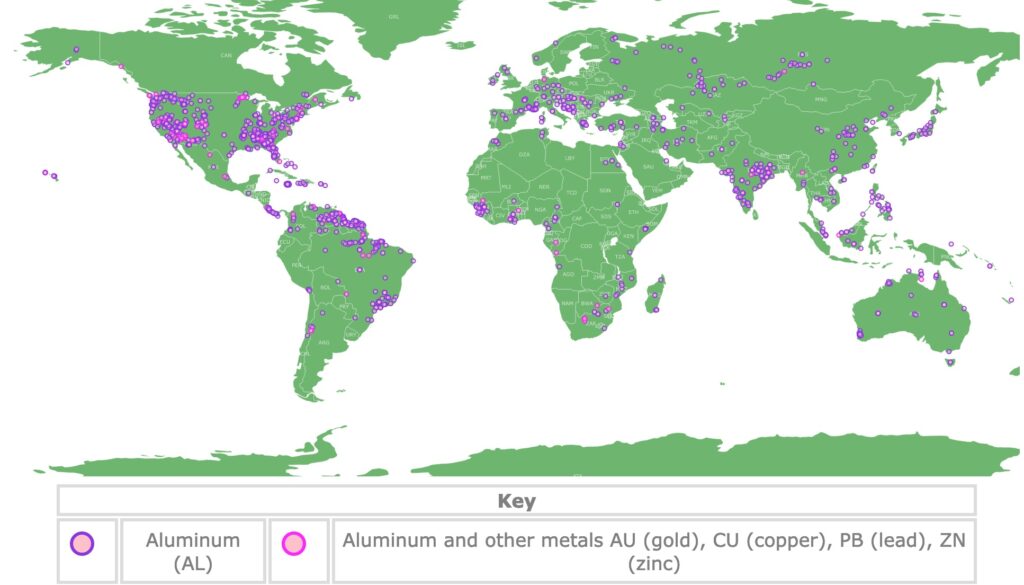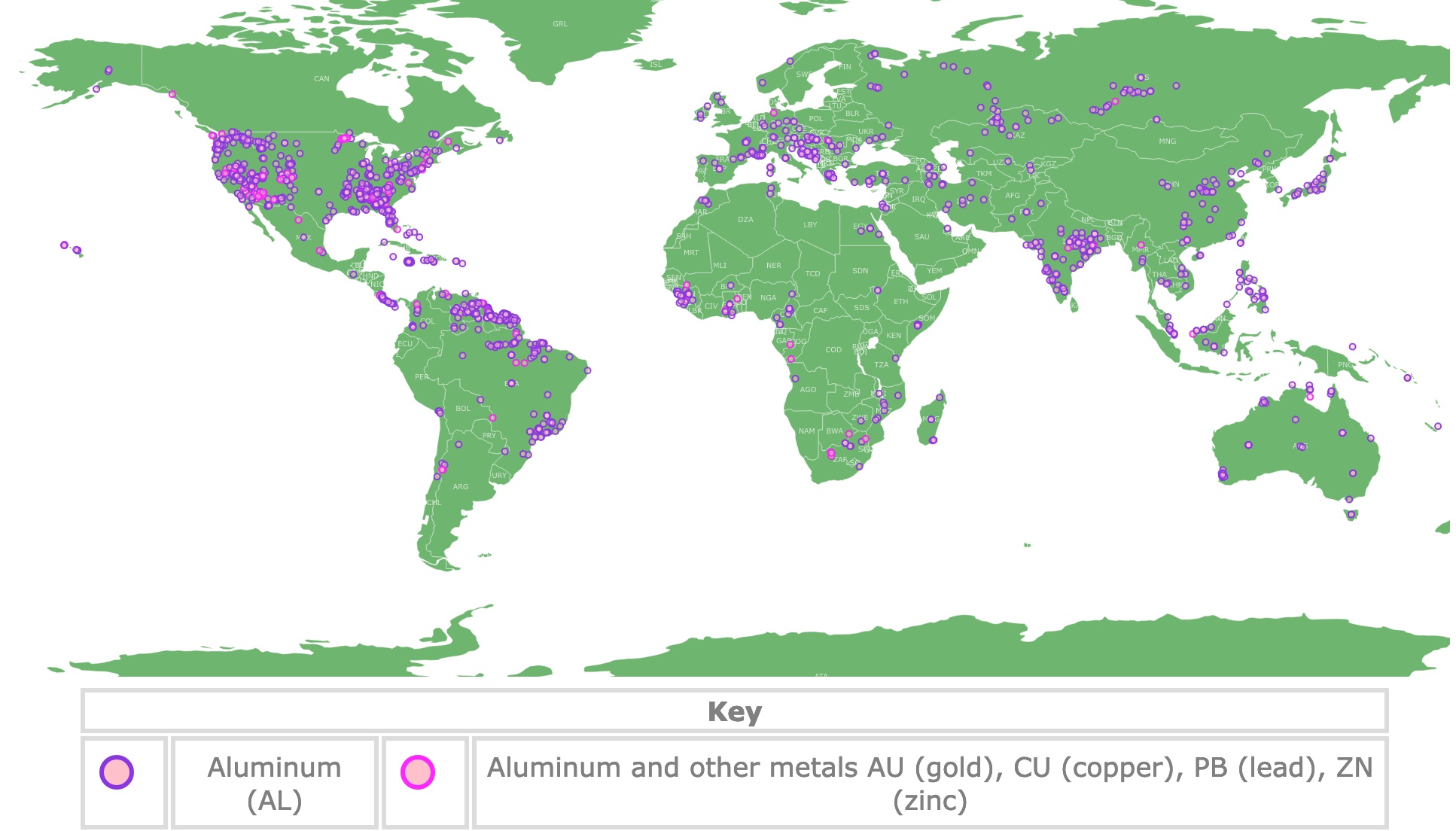
Where to Find Aluminum: A Comprehensive Guide for Consumers and Industries
Aluminum, a versatile and abundant metal, plays a crucial role in numerous industries and everyday applications. From construction and transportation to packaging and consumer electronics, its lightweight, corrosion-resistant, and recyclable properties make it an indispensable material. This guide provides a comprehensive overview of where to find aluminum, catering to both individual consumers and industrial buyers. Understanding the various sources and forms of aluminum will enable you to make informed decisions for your specific needs.
Retail Sources for Aluminum
For smaller quantities and consumer-oriented applications, several retail options are available:
Hardware Stores
Hardware stores are a primary source for basic aluminum products. You can typically find:
- Aluminum sheets and plates: Ideal for DIY projects, repairs, and small-scale fabrication.
- Aluminum rods, bars, and tubes: Useful for constructing frames, supports, and decorative elements.
- Aluminum angles and channels: Suitable for creating corners, edges, and structural components.
- Aluminum fasteners: Including screws, bolts, and rivets designed for joining aluminum parts.
Major hardware chains like Home Depot and Lowe’s usually stock a decent selection of aluminum in various sizes and thicknesses. Smaller, local hardware stores may offer more specialized or niche products.
Metal Suppliers and Scrap Yards
While not always the first thought, metal suppliers and scrap yards can be excellent sources for aluminum, especially if you need larger quantities or specific grades:
- Metal suppliers: These businesses specialize in selling various metals, including aluminum, in different forms and alloys. They typically cater to both individual and industrial clients.
- Scrap yards: These facilities collect and process scrap metal, including aluminum. While the condition and availability of aluminum in scrap yards can vary, they often offer significantly lower prices. Be sure to inspect the aluminum carefully for any damage or contamination.
Online Retailers
The internet provides a convenient way to purchase aluminum from a wide range of suppliers:
- Amazon and other e-commerce platforms: Offer a variety of aluminum products, from small sheets to larger quantities of rods and tubes.
- Specialized online metal retailers: These websites focus specifically on selling metals, including aluminum, and often provide detailed product information and technical specifications.
When buying aluminum online, be sure to check the seller’s reputation, shipping costs, and return policy.
Hobby and Craft Stores
For smaller, decorative projects, hobby and craft stores may carry:
- Aluminum wire: Used for jewelry making, sculpting, and other artistic endeavors.
- Aluminum foil: For crafting and decorative purposes.
- Anodized aluminum sheets: In various colors for decorative applications.
Industrial Sources for Aluminum
For larger-scale industrial applications, direct sourcing from manufacturers and distributors is often the most efficient and cost-effective approach:
Aluminum Manufacturers
Aluminum manufacturers produce a wide range of aluminum products, including:
- Aluminum sheets, plates, and coils: Used in automotive, aerospace, and construction industries.
- Aluminum extrusions: Custom-shaped aluminum profiles used in various structural and decorative applications.
- Aluminum castings: Components produced by pouring molten aluminum into molds.
- Aluminum forgings: Strong, durable components formed by shaping aluminum under high pressure.
Working directly with aluminum manufacturers allows you to specify your exact requirements and obtain custom solutions. However, minimum order quantities may apply.
Aluminum Distributors
Aluminum distributors act as intermediaries between manufacturers and end-users, offering a wide range of aluminum products from multiple manufacturers. They typically provide:
- A diverse inventory of aluminum products: Including sheets, plates, extrusions, and castings.
- Value-added services: Such as cutting, machining, and surface finishing.
- Technical support: To help you select the right aluminum alloy and product for your application.
Aluminum distributors are a good option if you need a variety of aluminum products or require value-added services.
Online Marketplaces for Industrial Materials
Several online marketplaces cater specifically to industrial buyers and sellers of metals, including aluminum. These platforms can provide access to a wider range of suppliers and competitive pricing.
Factors to Consider When Sourcing Aluminum
When deciding where to find aluminum, consider the following factors:
- Quantity: For small quantities, retail sources may be sufficient. For larger quantities, direct sourcing from manufacturers or distributors is often more cost-effective.
- Grade and Alloy: Aluminum is available in various grades and alloys, each with specific properties. Choose the appropriate grade and alloy for your application.
- Form: Aluminum can be found in various forms, including sheets, plates, rods, tubes, extrusions, and castings. Select the appropriate form for your needs.
- Price: Compare prices from different suppliers to ensure you are getting a fair deal.
- Quality: Inspect the aluminum carefully for any damage or defects.
- Lead Time: Consider the lead time required to obtain the aluminum.
- Certifications: For critical applications, ensure the aluminum meets relevant industry standards and certifications.
Aluminum Recycling: An Important Source
An often-overlooked source of aluminum is recycling. Aluminum is highly recyclable, and recycled aluminum retains all the properties of virgin aluminum. Consider using recycled aluminum whenever possible to reduce your environmental impact. Local recycling centers and scrap yards are excellent places to find recycled aluminum.
Specific Aluminum Alloys and Their Uses
Understanding different aluminum alloys is crucial for selecting the right material. Here are a few common examples:
- 1100 Aluminum: Excellent corrosion resistance, high thermal conductivity, and good workability. Commonly used in chemical processing equipment, food containers, and decorative trim.
- 3003 Aluminum: Good corrosion resistance and weldability, with moderate strength. Used in pressure vessels, pipelines, and sheet metal work.
- 5052 Aluminum: High strength, excellent corrosion resistance, particularly in marine environments. Used in boat hulls, fuel tanks, and aircraft components.
- 6061 Aluminum: High strength-to-weight ratio, good weldability, and corrosion resistance. A versatile alloy used in aerospace, automotive, and construction applications.
- 7075 Aluminum: Extremely high strength, making it suitable for demanding applications. Used in aircraft structures, high-performance automotive parts, and sporting goods.
The Future of Aluminum Sourcing
The aluminum industry is constantly evolving, with ongoing research and development focused on improving production processes, developing new alloys, and enhancing recycling technologies. As demand for aluminum continues to grow, sustainable sourcing practices will become increasingly important. This includes reducing energy consumption, minimizing waste, and promoting the use of recycled aluminum.
Conclusion
Knowing where to find aluminum is essential for both consumers and industries. By understanding the various retail and industrial sources, considering the factors that influence sourcing decisions, and exploring the potential of aluminum recycling, you can make informed choices and obtain the right aluminum products for your specific needs. Whether you’re working on a small DIY project or managing a large-scale industrial operation, this guide provides a solid foundation for navigating the world of aluminum sourcing. Remember to always prioritize quality, sustainability, and cost-effectiveness when making your purchasing decisions. [See also: Aluminum Recycling Guide] [See also: Choosing the Right Aluminum Alloy] [See also: Aluminum Fabrication Techniques]

